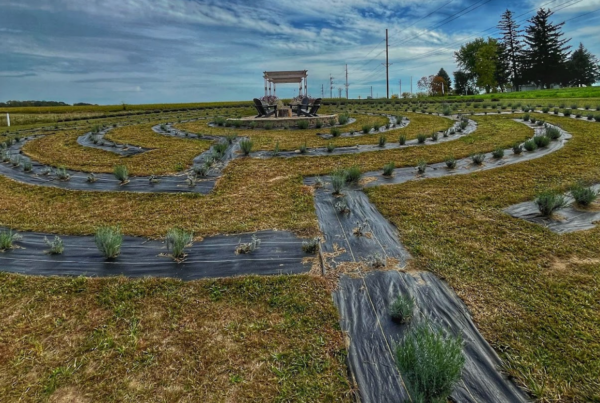Written by: Bob Bertsch
A few months ago, I wrote myself a note: “Let go of goals and expectations – you are not reading this so you can write a book, get a job or produce an output. You are just on a journey, in process.”
I wrote the note because I realized that, as I was reading a book or a blog post or even thinking about whether to click on a link shared on social media, I was thinking about whether it would be useful to my work. As a result, I was skipping over research that wasn’t specific to military families and choosing not to click interesting links because they weren’t relevant to what I was working on at that moment. On one hand, I was trying to be intentional and efficient, but on the other hand, I might have been cutting myself off from potential treasures.
Greatness Cannot Be Planned
In their book, “Why Greatness Cannot Be Planned: The Myth of the Objective,” Stanley and Lehman make the argument that while objectives may be helpful when they are “sufficiently modest”, they can become obstacles to greater achievements. Focusing on ambitious goals and constantly measuring our progress towards them, they argue, limits our desire to explore and actually decreases the likelihood that we will reach our objective.
In 2006, AI researchers, including Stanley, created “a new kind of artificial picture DNA that produced more rich, meaningful images” than were possible before. They created a website called Picbreeder (which still exists!) that allowed users to “evolve” pictures. Users could select an image from a random set, and Picbreeder would create a new generation of pictures that were similar to the parent image but with slight variations. Users could choose an image from that set to continue to evolve the images for successive generations and when they stopped, other users could pick up their chain and continue to evolve it.
Picbreeder led to an interesting insight. Setting out to create a specific image in Picbreeder by always choosing images that look the most like your target image doesn’t work. They tested this insight by having a computer program run thousands of generations in Picbreeder trying to create a target image by always choosing parent pictures that looked increasingly similar to the target image. It was a failure. Interesting images in Picbreeder were only being created when they were not the objective.
Following a False Compass
Stanley and Lehman used this insight, along with discussions of education, evolution, human innovation and AI research, to make the argument that setting ambitious objectives and measuring our progress towards them provides a “false compass.” We assume that we know the route to the objective, so we set a direction and follow it. However, we are more likely to reach ambitious goals by searching not with an objective in mind but by looking for novelty, something new that we’ve never seen before.
In hindsight, we can chart the path of invention and evolution, but, as Stanley and Lehman put it, “almost no prerequisite to any major invention was invented with that invention in mind.” If we had set out to invent a modern computer two hundred years ago, we would not have known we needed to invent vacuum tubes first. If we could have set out millions of years ago to direct evolution to evolve single cell organisms into humans, we likely would have tried to make organisms that looked more and more “human.” In our drive toward that objective, we would have been uninterested in the flatworm that led to the bilateral symmetry (two eyes, two ears, two arms, two legs; right and left) that is so important to human physiology. After all, a flatworm looks nothing like a human, so how can it get us closer to our objective?
Instead of following the “false compass,” the authors suggest we become treasure hunters, seeking the new and interesting, encouraging diversity of thought. They write, “To achieve our highest goals, we must be willing to abandon them.”
Putting It Into Practice
I hadn’t come across “Why Greatness Cannot Be Planned: The Myth of the Objective,” when I wrote myself the note I mentioned earlier. Somehow I sensed I was hiding behind small objectives like writing a blog post or creating a podcast episode, but my bigger objective was really to do meaningful and interesting work. To get to that goal, I had the feeling I needed to let go of my objectives and search for the interesting.
Of course, I have tasks that still need to be done. I can’t spend all my time hunting for treasures, but I can bring my curiosity and spirit of exploration to my work whenever possible. And, in those times made for exploring (taking a walk, reading a book, listening to a podcast), I can lean into my search for novelty, instead of worrying how to apply what I’m finding to get me to my objective.













